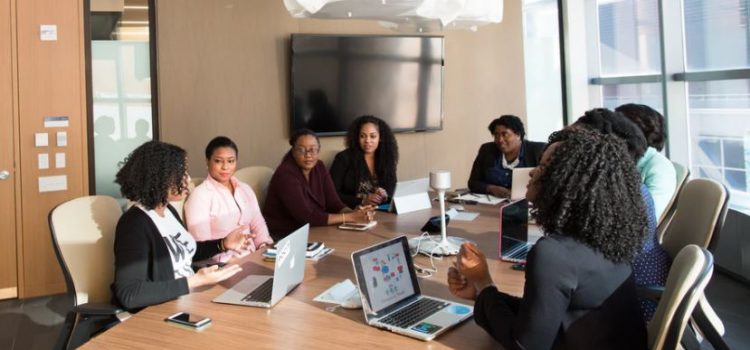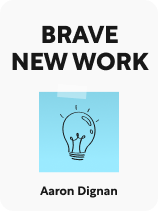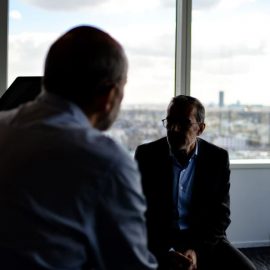

This article is an excerpt from the Shortform book guide to "Brave New Work" by Aaron Dignan. Shortform has the world's best summaries and analyses of books you should be reading.
Like this article? Sign up for a free trial here.
Why is democracy in the workplace important? How do you distribute authority at work?
In Brave New Work, Aaron Dignan emphasizes the importance of giving power to everyone in the workplace. Doing this ensures equality at work and encourages employees to speak up and carry out the organization’s purpose.
Let’s look at how you can enforce democracy in the workplace to create an environment of equality.
Distribute Authority Widely
For the principles of autonomy and flexibility to be effective in your organization, authority is an important area to reform. In general, Dignan recommends giving people the power to carry out the organization’s purpose the best way they see fit, rather than workers simply following orders from a superior. Regular governance meetings and allocating resources as needed are a couple of specific ways to implement democracy in the workplace.
A regular governance meeting creates a democratic space for everyone to implement the consent process discussed in the previous section. In these meetings, everyone has the authority to propose changes to structures and processes or to raise concerns about anything inhibiting their work. If your organization already has a lot of meetings, Dignan also recommends canceling all meetings for two weeks to give everyone a chance to figure out what meetings are genuinely helpful. People can then return to the governance meeting with a new perspective on what changes they want to see and what processes they want to maintain.
(Shortform note: Applied in a different context, governance meetings within families enable a more democratic style of parenting, as opposed to an authoritarian style (where parents set strict rules) or a permissive style (where children can do what they want). In democratic parenting, governance meetings are an opportunity for each family member to have a voice and weigh in on activities, household rules, and allowances. Similar to Dignan’s benefits of an autonomous workplace, advocates of this practice argue that it fosters feelings of connection, worthiness, autonomy, and courage in children.)
Since control of resources is another way to exercise authority, allowing workers to allocate resources as needed is another way to distribute authority. Rather than adhering to a rigid, traditional budget that controls the flow of resources, Dignan suggests maximizing discretionary funds and the number of people who have access to them.
More Strategies for and Benefits of Decentralizing Authority
Although the context differs from the corporate environment, in Team of Teams, Stanley McChrystal talks about strategies and benefits of redistributing authority throughout his military task force in Iraq. Despite the fact that the military is known for its rigid hierarchical structures, McChrystal found that running all decisions through the chain of command put them at greater risk because they could not act quickly in high-stakes situations.
To distribute authority throughout the ranks, McChrystal encouraged members to make decisions independently as long as the decision advanced the mission of the task force and was moral and legal. When officers who felt comfortable making decisions on their own reported on those decisions at briefings, McChrystal publicly approved of their actions to encourage more people to do the same. This decentralization of authority took more time for some people to adjust to, but McChrystal eventually noted the following benefits of this method:
- Decisions were made more quickly, making the operations more efficient.
- The quality of the decisions improved because the individuals responsible for making them felt more invested in the outcome. Instead of simply carrying out someone else’s order, they had to decide what they thought was best and eventually report on the outcome.
- The people closer to the action were making better decisions, as opposed to their superiors, who might be farther away and have less contextual information.
Morning Star Case Study
As an example of distributing authority via resources, Dignan describes a tomato-processing company called Morning Star. Morning Star has working groups annually present their ideas for the year, and they collectively build the budget based on the ideas they are most excited about. They also allow employees to annually set their own salaries and write their own job descriptions, followed by a peer review process where their colleagues can give advice. Through these mechanisms, authority that is usually concentrated at the management level is distributed to everyone. In addition, the company’s profit growth far outpaces that of its competitors with more traditional structures.
(Shortform note: Similar to this example, Laloux’s Reinventing Organizations discusses the merit of allowing employees to set their own salaries and creating a peer review system for salaries. However, there’s potential for gender inequality and other forms of societal inequality to persist in these systems. One study showed that women earn 25% less than men in self-managed teams, potentially because of the difference in their negotiating styles. Although Dignan points out that with peer review, people can encourage their colleagues to increase their proposed salary if they’re undervaluing themselves, or vice versa, mechanisms may still be needed to counteract embedded inequality in the workplace.)

———End of Preview———
Like what you just read? Read the rest of the world's best book summary and analysis of Aaron Dignan's "Brave New Work" at Shortform.
Here's what you'll find in our full Brave New Work summary:
- How organizations can adapt to the rapid pace of change in the modern world
- Why old organizational structures don't work anymore
- How to enable organizations to run themselves through decentralized work






